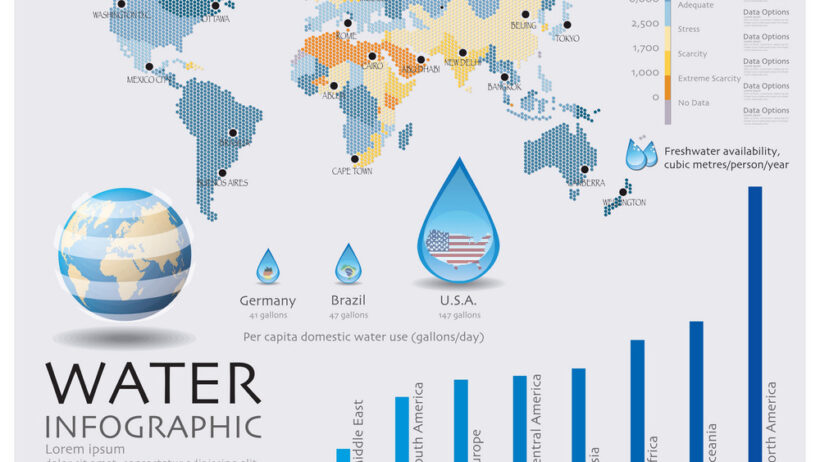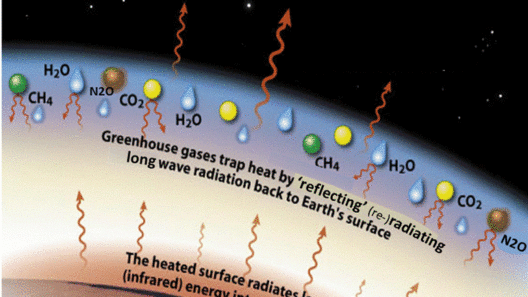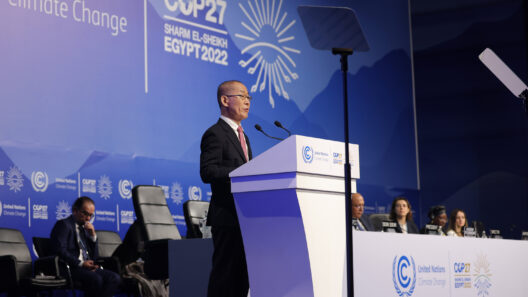Access to clean water is a fundamental human right, yet it increasingly hangs in the balance as global warming escalates. The intricate tapestry of life across the planet interweaves with the availability of freshwater, a resource that is becoming alarmingly scarce. Climate change, driven by human activities, has reshaped weather patterns, disrupted local ecosystems, and exacerbated droughts and floods. As we delve into the multifaceted relationship between climate change and access to clean water, we must comprehend the gravity of this crisis that might seem remote yet impacts millions globally.
The hydrological cycle, which governs the distribution of water in the environment, is undergoing profound transformation due to rising temperatures. These changes are not mere fluctuations; they are altering precipitation patterns, causing some regions to receive excessive rain, while others suffer prolonged drought. For instance, areas that have depended on predictable seasonal rains are now facing unpredictability, resulting in a dire depletion of groundwater reserves. Consequently, the very fabric of community life—agriculture, sanitation, and health—is jeopardized.
Drought, often heralded by desiccated landscapes and parched earth, has far-reaching consequences. When water supplies dwindle, agricultural yields diminish, leading to food insecurity that reverberates through economies and cultures. Sub-Saharan Africa is one region acutely affected, where subsistence farmers rely on erratic rainfall for their livelihoods. Prolonged dry spells can decimate crops, leaving families with diminished incomes or, even worse, hunger.
In sharply contrasting scenarios, excessive rainfall and flooding also devastate access to clean water. When rain falls in torrents, it often overwhelms local drainage systems, causing contamination of freshwater supplies. Accelerated runoff can lead to sediment and pollutants washing into rivers and lakes, rendering these sources unsafe for human consumption. This cycle of scarcity and contamination can create a pernicious barrier to public health, leading to the spread of waterborne diseases, which claim countless lives every year.
The repercussions of climate change extend beyond immediate physical impacts; they touch the very essence of societal resilience and governance. As water becomes an increasingly contested resource, conflicts over its management grow more intense. Regions that once enjoyed harmonious coexistence may find disputes escalating, driven by scarcity. This unfolding drama underscores the urgent need for comprehensive water management policies that consider future climatic conditions. Stakeholders must engage collaboratively in innovative solutions, focusing on sustainable practices that enhance water conservation and mitigate conflict.
Technological advancements present potential pathways to address these challenges. Innovative water management technologies, such as desalination and rainwater harvesting systems, offer glimpses of hope. However, these solutions often require substantial financial investment and may not be equitably accessible—therein lies a significant dilemma. The gulf between affluent and disadvantaged communities can widen, leading to further disparities in access to clean water. Policymakers must prioritize equitable access to these advancements so that marginalized populations can also reap the benefits of improved water security.
The phenomenon of climate change does not adhere to geopolitical boundaries; it is a global challenge necessitating global solutions. International cooperation is paramount. Agreements such as the Paris Accord highlight the need for countries to mobilize resources and share best practices for sustainable water management. The interdependence of nations in addressing climate-related water scarcity reflects a larger truth about our shared human experience. As environmental challenges escalate, so does the imperative for solidarity among people and nations.
Education plays an indispensable role in fostering a more profound understanding of the intricacies of water availability amid climate change. Communities must be informed about conservation methods, the significance of protecting watersheds, and the impact of individual behaviors on water resources. Schools, NGOs, and governments can collaborate in disseminating information that encapsulates these themes, empowering individuals to become stewards of their local water resources.
Resilience and adaptation are invaluable as societies grapple with the realities of an uncertain water future. Innovative practices, such as agroecology and integrated water resource management, promote a holistic approach to managing landscapes. By understanding local ecosystems and engaging in conservation efforts, communities can enhance their adaptive capacity to withstand climate impacts. Local knowledge, coupled with scientific research, can inform strategies that are both effective and culturally relevant, ensuring that communities are equipped to face the impending challenges.
The interplay of climate change and water availability is an inexorable truth of our time. As we confront the implications of global warming, it is imperative to shift our perspective—viewing water not merely as a resource but as a keystone of life. The urgency of the crisis calls for proactive engagement from all sectors of society. Individuals, governments, businesses, and civil organizations must contribute to a collective narrative that emphasizes sustainability and equity in water access. By fostering awareness, implementing collaborative strategies, and promoting technological innovation, we can begin to address the multifaceted challenge that access to clean water presents in the wake of global warming.
As we navigate this complex terrain, the pursuit of clean water amidst the backdrop of climate change should serve as a rallying cry for action. It offers an opportunity to reflect on our interconnectedness while advancing a shared goal of preserving this most essential resource for generations to come. The once taken-for-granted availability of clean water demands a renewed commitment, a shift in consciousness aimed at safeguarding it for all.








